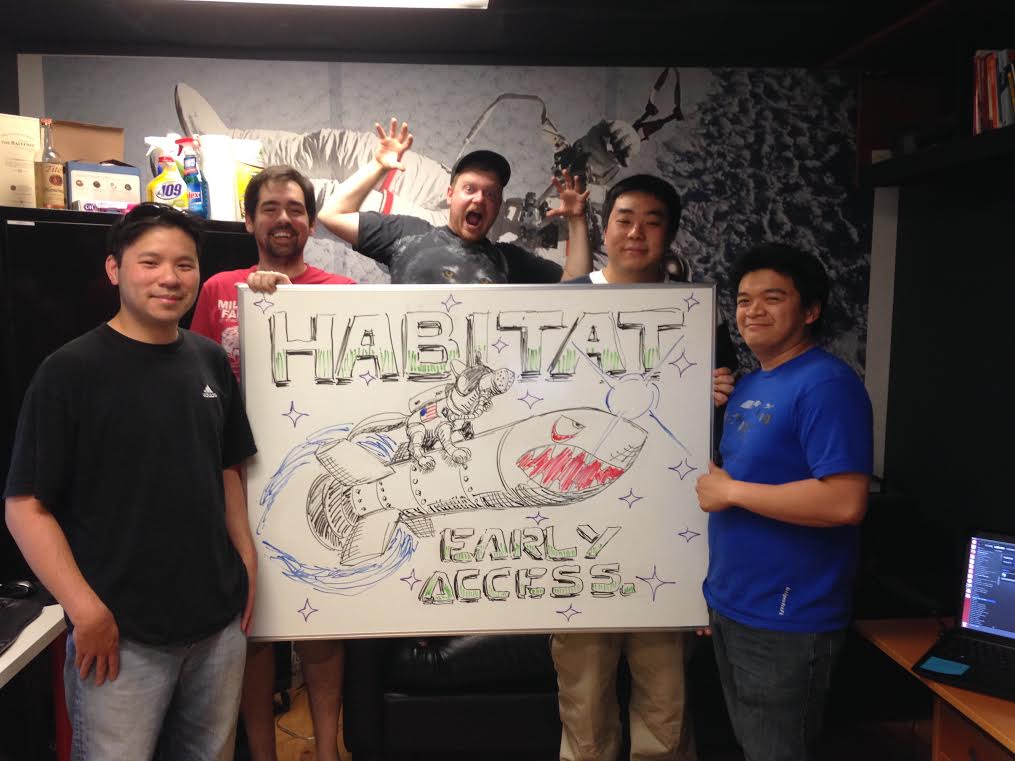Mobile gaming’s not what it used to be. Or perhaps — for many small studios, at least — it was never really such a great opportunity.
The mobile market is worth an estimated $30.3 billion, but that revenue’s not shared evenly across the platform. The sustained dominance of established big-hitters like Clash of Clans and Candy Crush — along with the problem of discovery in a flooded market — is making life tough for a lot of indie mobile-game developers. And with big players like Nintendo, Konami, and Square Enix now heading deeper into the mobile space, it’s interesting to note that many smaller teams are shifting the other way.
Recently, I spoke to three developers who’ve had their fill of mobile and have refocused on making PC games. They paint an interesting picture of a market that’s stifling innovation in a free-to-play gold rush. It’s a non-standard take on the potential of mobile, but it’s one that’s increasingly familiar to indie teams struggling to turn a profit.
The race to the bottom
Charles Cox is perhaps best known as the guy who won’t make another first-person shooter. A seasoned developer who was at Microsoft for many years — he planned and built the developer education program for Xbox One — he’s currently working on Habitat, a physics-based space-survival game in Early Access on Steam.
But a few years back, he made two mobile games — Node.Hack and Armored Drive — that were well received critically. I hopped on a Skype chat with Cox to ask why he’d shifted the focus from mobile to PC at his studio 4gency. He shared some interesting thoughts on the potential perils of the mobile scene.
“The interesting thing about the mobile space is that it is — certainly for the most successful titles and for even the smartest studios — incredibly data-driven,” said Cox.
“I think that maybe I did get a little disappointed because so much of [being in] mobile games is to fight that fight, whether or not you want to. For a lot of folks like me — who came from ‘buy a game, play a game, enjoy a game’ — you don’t even want to talk about stuff like user acquisition and monetization. They’re like dirty words.”
But if you don’t think that way, you’re dead before you begin, he reckons. “Not only do you have to talk about it, but you’re swimming with people and large companies that have already got this thing down to a science.”
For Cox, the unregulated nature of the mobile market means that game studios are racing to the bottom — both in terms of price and innovation.
“There’s a theory that in totally unregulated markets, where there are no artificial barriers to entry, services and competition will devolve down to just waging war on price only,” he said. “So it’s not about quality of service; it’s not about unique advantages that companies can hold. Eventually the economics boil down to, ‘Ah, what’s cheaper.’
“It leads to a kind of weird linearization and homogenization of services, and I worry that in unregulated markets for games, you’ll see the same thing happening, where people just drive down to zero on price and they copy each other and so on.”
Innovation and discovery
Part of his decision to head to PC was the robust community of gamers who are still willing to pay “decent prices for quality games” and are in interested in seeking out and supporting innovation.
“On PC, there’s already an attitude of, ‘Hey, let’s see what interesting cool stuff is out there,’” Cox said.
He says that building a community around innovative games is way more possible on PC. On mobile, innovation just isn’t rewarded the same way.
“You don’t want to have to create a new property [on mobile] and throw it out to the world and then fight with paid user acquisition to try to get up the charts,” said Cox.
But the big problem for mobile developers is discovery. With 500 new games hitting iOS every day during 2014, getting attention is becoming more and more tricky. And the mobile stores’ approach to discovery isn’t helping any, says Cox.
“I’ve seen nothing but incremental changes in the way that we do app discovery,” he said. “Largely you search the app store and there’s these giant tiles [the app store icons], and there’s a couple of editor picks, and nothing has changed in five years. If that stays the same and the number of apps increases … then the winners will take most of the money, and the losers will get nothing.”
Advice for fellow developers
Steam is at least trying to tackle discovery, but its daily releases are also growing, and the effectiveness of its curation system is not yet clear. Still, Cox says he’s encouraging fellow developers to skip mobile and head to PC.
“When I gave my talks on my lessons learned with mobile, people came up to me and said, ‘Do you think I should go on PC instead?’ I told them without hesitation — I said, ‘Absolutely.’ I think there’s a renaissance in progress, and I think there’s great stuff there.”
Cox says he may go back to mobile eventually, but only with a game that’s already proved a success and built its own community on PC — similar to what titles like FTL: Faster Than Light and XCOM: Enemy Unknown did previously. Beyond that, he’s leaving mobile alone, like many other people he meets.
“I’ve talked to folks who have both learned the hard way, as I have,” he said, “and who learned the easy way. They listened to other people who tried this and flamed out like I did.”



